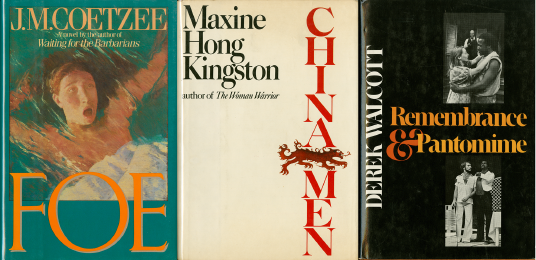The Special Collections Research Center announces a new exhibit, Other Crusoes, Other Islands: Mapping a Complex Legacy. On the 300th anniversary of the publication of The Life and Surprising Adventures of Robinson Crusoe, of York, Mariner, this exhibit interrogates the troubled legacy of Daniel Defoe’s seminal English novel. It also explores how creators have pushed back against the colonialist, hyper-masculine, and racist ethos of the text by using the castaway narrative to explore self-sufficiency, otherness, and the role of gendered and racialized ideas in constructing the self.
This novel of shipwreck, survival, and rescue has become a cultural touchstone. Today, many people who haven’t read the novel still feel familiar with key plot elements, Robinson Crusoe, and Friday. Yet, there is less familiarity with how both the original text and many of the adaptations of Robinson Crusoe have fed into and reinforced narratives of imperialism and racism. Drawing on the Hubbard Collection of Imaginary Voyages - one of the world’s most comprehensive collections of editions, translations, adaptations, and spin-offs of Robinson Crusoe - Other Crusoes, Other Islands seeks to understand how readers and writers have engaged with the story since its initial publication in 1719.

Foe by J.M. Coetzee, 1987; China Men by Maxine Hong Kingston, 1980; Remembrance & Pantomime: Two Plays by Derek Walcott, 1980.Caption
Join us on Monday, September 23 at 5:30 p.m. for a panel discussion exploring how the exhibit took shape, as well as how critics today view the complex legacy of the novel. Curators Juli McLoone, Angie Oehrli, and Sigrid Anderson Cordell will be joined by Clement Hawes from the Departments of English and History. There will also be an opportunity for Q&A and browsing the exhibit. Light refreshments will be provided.
Content Advisory: Please be aware that some items in this exhibit feature racist imagery and potentially painful content. Although Robinson Crusoe is often treated as children’s literature and this exhibit includes children’s books and board games, it is not an exhibit geared towards children and reflects the significant shifts over time in ideas about what is appropriate for children.
Visit the exhibit in the Audubon Room on the first floor of Hatcher North now through December 17.